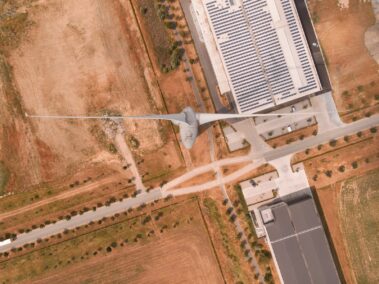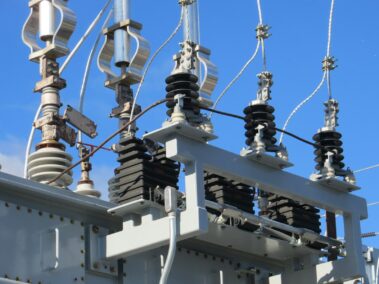Harnessing the Power of AI in Energy Management Systems
The Role of AI in Modern Energy Management
In recent years, the integration of AI in energy management systems has revolutionized the way businesses and governments handle energy resources. Particularly in Saudi Arabia and the UAE, where the emphasis on sustainable energy and renewable resources is paramount, AI technology has become a cornerstone for optimizing energy use. The application of AI in these regions not only enhances efficiency but also significantly reduces costs and environmental impact.
AI-driven energy management systems analyze vast amounts of data from various sources, including weather forecasts, energy consumption patterns, and renewable energy production rates. By doing so, these systems can predict energy needs and adjust resource allocation accordingly. This predictive capability is crucial in regions like Riyadh and Dubai, where energy demands can fluctuate dramatically due to climatic conditions and rapid urban development.
Moreover, AI technology facilitates real-time monitoring and management of energy systems, ensuring that any discrepancies or inefficiencies are promptly addressed. This level of precision is essential for maintaining the balance between energy supply and demand, especially when integrating intermittent renewable energy sources such as solar and wind power. The implementation of AI in energy management thus represents a significant leap towards achieving sustainable and resilient energy infrastructures in Saudi Arabia and the UAE.
Transforming Renewable Energy Utilization
The strategic deployment of AI in energy management systems has been particularly impactful in optimizing the utilization of renewable energy sources. Saudi Arabia and the UAE have invested heavily in renewable energy projects, such as the King Abdullah City for Atomic and Renewable Energy (KACARE) and the Mohammed bin Rashid Al Maktoum Solar Park. These projects highlight the commitment of both nations to diversify their energy portfolios and reduce reliance on fossil fuels.
AI algorithms are adept at handling the variability and unpredictability associated with renewable energy production. For instance, AI can forecast solar radiation levels and wind speeds with high accuracy, allowing energy systems to anticipate and adapt to changes in energy generation. This ensures a stable and reliable supply of renewable energy, minimizing waste and maximizing efficiency.
In addition, AI enhances the integration of renewable energy into the national grid. By managing energy storage systems and controlling energy flow, AI helps to stabilize the grid and prevent blackouts or energy shortages. This is particularly important in densely populated urban centers like Riyadh and Dubai, where uninterrupted energy supply is critical for economic and social activities. Through the use of AI, Saudi Arabia and the UAE can better harness their abundant renewable resources, paving the way for a sustainable energy future.
Driving Business and Economic Growth
The adoption of AI in energy management systems is not only an environmental imperative but also a significant driver of business and economic growth. For business executives and entrepreneurs in Saudi Arabia and the UAE, leveraging AI technology in energy management presents numerous opportunities for innovation and competitive advantage. Companies that integrate AI into their energy strategies can achieve substantial cost savings by optimizing energy use and reducing waste.
Moreover, the implementation of AI-driven energy solutions can enhance a company’s reputation and appeal to environmentally conscious consumers and investors. In the context of global sustainability trends, businesses that prioritize energy efficiency and renewable energy are more likely to attract investment and customer loyalty. This is particularly relevant in markets like Saudi Arabia and the UAE, where there is a strong governmental push towards sustainability and green initiatives.
Furthermore, the development and deployment of AI in energy management create new avenues for job creation and skill development. As demand for AI specialists and energy management professionals grows, there will be increased opportunities for training and education in these fields. This contributes to the broader economic development goals of Saudi Arabia and the UAE, supporting the diversification of their economies and the creation of high-value jobs.
The Future of AI in Energy Management in the Gulf
Innovations in AI and Energy Management
The future of AI in energy management systems promises even more innovative and sophisticated solutions for optimizing renewable resources. Advances in machine learning, data analytics, and IoT (Internet of Things) technologies are set to further enhance the capabilities of AI in managing energy systems. In Saudi Arabia and the UAE, ongoing investments in smart city initiatives and digital infrastructure provide a fertile ground for the integration of these cutting-edge technologies.
Emerging AI applications include the development of autonomous energy grids that can self-regulate and optimize energy distribution without human intervention. These systems will be able to learn from historical data and continuously improve their performance, leading to greater efficiency and resilience. Additionally, AI-powered microgrids can operate independently from the main grid, providing localized energy solutions that are particularly useful in remote or underserved areas.
Another promising development is the use of AI in predictive maintenance for energy infrastructure. By analyzing data from sensors and other monitoring devices, AI can predict equipment failures and schedule maintenance before issues arise, thereby reducing downtime and maintenance costs. This proactive approach to energy management ensures the reliability and longevity of energy systems, which is crucial for the sustainability goals of Saudi Arabia and the UAE.
Policy and Regulatory Support
The successful integration of AI in energy management systems also depends on supportive policies and regulatory frameworks. Both Saudi Arabia and the UAE have demonstrated strong governmental support for AI and renewable energy initiatives. In Saudi Arabia, the Vision 2030 plan outlines a comprehensive strategy for economic diversification, with a significant focus on AI and renewable energy. Similarly, the UAE’s National AI Strategy 2031 aims to position the country as a global leader in AI, with energy management being a key area of application.
These policy frameworks provide the necessary guidance and incentives for businesses and investors to adopt AI in energy management. By offering financial incentives, subsidies, and regulatory support, governments can encourage the widespread deployment of AI technologies in the energy sector. This, in turn, accelerates the transition towards a more sustainable and efficient energy system.
Moreover, international collaboration and knowledge exchange play a vital role in advancing AI in energy management. Saudi Arabia and the UAE can benefit from partnerships with leading global institutions and companies specializing in AI and renewable energy. These collaborations can facilitate the transfer of technology and expertise, driving innovation and fostering the development of best practices in energy management.
Conclusion: A Sustainable Energy Future
The integration of AI in energy management systems represents a transformative approach to optimizing renewable resources and achieving sustainable energy goals. In Saudi Arabia and the UAE, the adoption of AI technology is not only enhancing energy efficiency but also driving economic growth and innovation. By leveraging AI, these nations can better manage their abundant renewable resources, reduce environmental impact, and ensure a stable and reliable energy supply.
As technological advancements continue to unfold, the potential of AI in energy management will only grow. Innovations in machine learning, data analytics, and IoT will further enhance the capabilities of AI, leading to more efficient and resilient energy systems. With strong governmental support and international collaboration, Saudi Arabia and the UAE are well-positioned to lead the way in sustainable energy management, setting an example for the rest of the world.
In conclusion, the future of AI in energy management is bright, promising significant benefits for both the environment and the economy. By embracing this technology, Saudi Arabia and the UAE can achieve their ambitious sustainability goals and pave the way for a greener, more prosperous future.
#AI #EnergyManagement #RenewableEnergy #SaudiArabia #UAE #SustainableEnergy #ArtificialIntelligence #SmartCities #EconomicGrowth #Innovation























